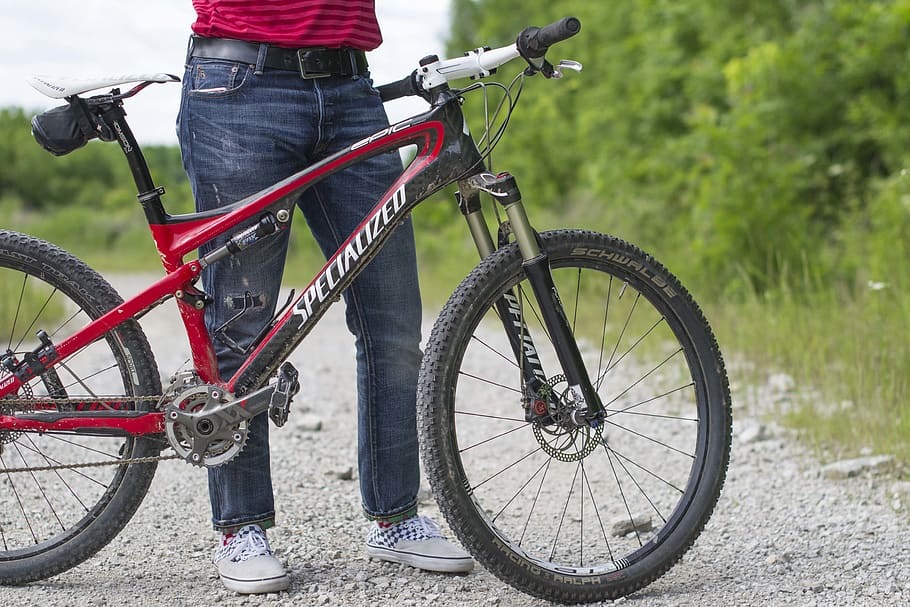For essential workers, socially distanced travel just got a little easier.
Between now and April 22, bike company Specialized will donate at least 500 new bikes directly to healthcare workers, grocery store clerks, farmers, and other critical infrastructure employees. That makes Specialized perhaps the first corporate bike manufacturer to step up to help provide essential workers a safe, solo way to get around during these unprecedented times without resorting to a high-polluting car — but it's far from the only mobility provider who recognizes that bike access is crucial to stopping the spread of COVID-19.
The Specialized program was inspired, in part, by Transportation Alternative's #BikeMatch program, a simple Google doc that helps connect New Yorkers with spare bicycles lying around their apartments with the first responders who need them to avoid crowded transit commutes. (If you're not a New Yorker, TransAlt wrote up a handy guide to starting your own Bike Match program in your area.) Specialized's giveaway is following a similar model, at least in its second phase; after the company's stash of 500 free bikes have been claimed, the company has committed to matching as many essential workers as possible with Specialized bikes that have been bought and donated by other customers. These bikes, of course, are offered at a steep discount, with a small profit extending to the local shop that will deliver the bike to the worker; Specialized itself will not take a cut.
"Keeping essential workers moving is critical for our communities, and normal commutes and transportation routines for many have been upended during the crisis," said Ian Kenny, brand leader at Specialized. "Bikes provide healthy, reliable, and convenient transportation while practicing safe social distancing, and we wanted to do our small part in using the power of the bicycle to help make life a little easier for those on the front lines."
Old school bike co-ops are also adapting their efforts to put bikes in the hands of essential workers, albeit without the open-shop hours and tons of closely-packed residents sharing pedal wrenches that are the typical hallmarks of the co-op model. Rather than simply closing their doors for the duration of the pandemic, co-ops like The Squeaky Wheel in Ontario, Canada are putting small numbers of volunteers to work to fix up donated fleets in socially-distanced shops that are closed to the general public. The co-oppers have teamed up with Canadian non-profit the Big Bike Giveaway to fix up and hand out at least 15 bikes a week to essential low-income workers.
Even some for-profit bike shops are getting into the spirit, like this Roanoake, Va. store that's offering to receive, service and give away its customers' donated bikes to first responders, in addition to a small quantity of used bikes from its own stock. Critical workers can even get a free bike fitting while they're there.
When it comes to bike-, scooter- and moped-share companies, the generosity has been a little more uneven — but some companies are stepping up, at least for healthcare workers. Lyft scooters, Spin, and Revel have all offered free rides to employees of hospitals and doctor's offices in some cities; local bike shares like Nice Ride Minneapolis, Chicago's Divvy Bikes, and Omaha's Heartland Rides are doing the same thing with their cycles. Lime, which pulled nearly all its scooters worldwide when the outbreak struck, is re-deploying a small number of scooters in select cities specifically to give free, 30-minute rides to healthcare workers and law enforcement officers.
It's even more impressive when micromobility companies offer free rides to all residents — because, after all, the healthcare industry doesn't have a monopoly on essential professions, and every homebound American could probably stand to unwind with a safe, socially distanced bike ride now and then. Detroit's MoGo Bikes has the right idea, and it's giving way free 30-day passes; just be sure to wipe down handlebars and wear gloves to protect yourself and your fellow riders.
But however they're getting on two wheels, it's heartening to hear that crucial workers are getting access to safe, green alternatives to transit — and helping to cut dangerous car traffic on our streets even further. And if enough first responders make the switch to sustainable modes, it could become the groundswell moment we need to start finally building safe streets for all those brand new cyclists.






